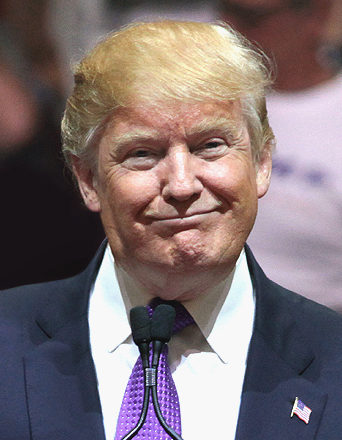A nation must think before it acts.
Donald Trump can always be counted on to upset a long-standing apple cart. He did it again in his most recent interview with the New York Times. He made clear that in his view, America’s treaty commitments, for decades a cornerstone of its national security policy, are not binding. Instead, they are subject to any sort of conditionality that the president might choose to impose.
For Trump, that conditionality is budgetary. If a given ally, or group of allies, do not contribute their fair share according to Trump, they can no longer rely on America coming to their aid in case of an attack by an aggressor. And it will be Trump — assuming, as he does, that he is elected president — who will determine what a fair share might be.
Trump was referring specifically to a Russian attack on one of the three Baltic states, all of which are NATO members. By asserting that they could well be on their own were Russia to seek to reoccupy them, Trump was doing more than abandoning allies who for five decades, from 1940 to 1990, the United States had considered “captive nations.” He was serving notice that he perceives Russia as far more benign than do the Europeans or the previous leaders of both major American political parties. Perhaps that should come as no surprise. Russian President Vladimir Putin was one of the first major figures to support Trump’s candidacy for president. And American presidents have a long tradition of rewarding their earliest supporters once elected. Since Trump cannot award Putin an ambassadorship (then again, who knows, maybe he can?), the Republican nominee might as well grant the Kremlin the right to invade one or more neighboring states.
Rather than maintaining oversees bases, Trump asserts that it would be far more efficient for American forces to deploy from the United States. Such a policy would solve the problem of underutilized bases and would obviate the need for a new round of base closures. And it would no doubt delight a non-insignificant number of members of Congress. On the other hand, the redeployment of forces back to the United States may not result in cost savings when — not if — an aggressor threatens America’s overseas interests. The cost of stationing American forces abroad is not borne by Washington alone. Host nations such as Japan and South Korea make a significant contribution toward covering those costs.
Continue reading “Trump’s Position on Treaty Commitments Has Already Hurt America“



